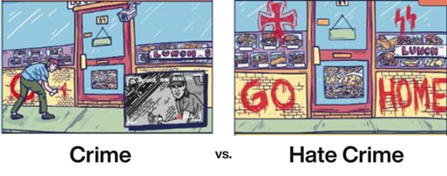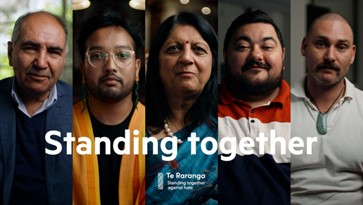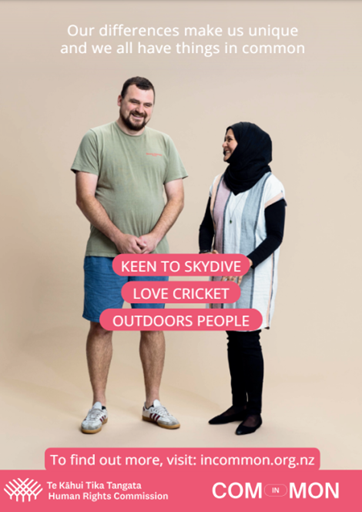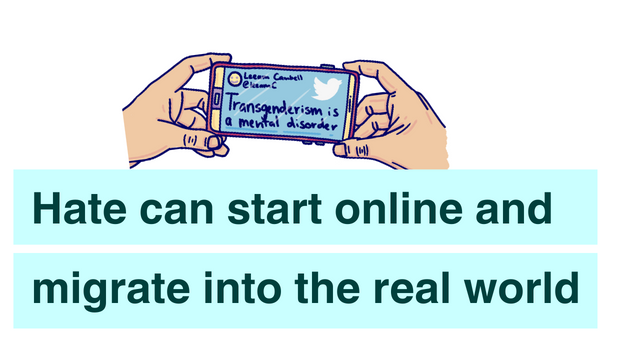What are hate-motivated crimes?
New Zealand Police identifies a hate-motivated crime as occurring when two things have happened:
- a crime has been committed (for example an assault, damage to property or threatening behaviour)
- the person(s) committed the crime because of hate (bias or prejudice) towards the victim’s race, religion, gender, sexuality, disability, age, or any other part of their identity.

Any crime can have a negative impact but when someone is targeted because of their faith, disability, race, ethnicity or nationality the effects of the harm can increase and quality of life, happiness, and feelings of safety can suffer.
Education programmes
Netsafe have lots of resources for teachers to teach students about misinformation and fake news.
New Zealand Police have developed a range of resources that can be used in schools to help young people recognise hate-motivated behaviour and know how to respond.
- New Zealand Police - Standing Together Against Hate
Talks that Matter have developed resources including a video and facilitation guide to prepare educators, a lesson plan, video for young people and helpful templates. These resources have been developed in consultation with New Zealand educators and law enforcement to allow teachers and kaiako to foster a safe, open environment where rangatahi feel empowered to share their views, explore alternative and/or diverse perspectives.
The Institute of Strategic Dialogue have designed a digital citizenship programme that supports teachers to discuss misinformation, hate speech and unconscious bias with students.
Conversation icebreakers
Ara Taiohi, The Prince’s Trust NZ, and Nas have develop the MOSAIC cards to help kickstart powerful and hopeful conversations about prejudice and racism. The cards are designed to be used by whānau, young people and people who work with young people, to support healthy conversations as we endeavour to be a more peaceful and inclusive society
Videos
The Te Raranga Advisory Group have developed a series of videos that tell the stories of five people based in Aotearoa New Zealand and their diverse experiences. These videos can be used to support conversations in schools about hate crimes.
- The Te Raranga Advisory Group – Standing Together Against Hate

Posters and factsheets
Educators play a key role in highlighting that having a diverse range of people in your community is a strength. Te Kāhui Tika Tangata Human Rights Commission have created some guidance to help educators foster safe and inclusive practices for students, and to ensure diversity in all forms is accepted and celebrated.
- Te Kāhui Tika Tangata Human Rights Commission – Social cohesion for schools
Te Kāhui Tika Tangata Human Rights Commission and InCommon have created a campaign to help increase social cohesion and reduce hateful divides.The campaignfocuses on helping people find the things they have in common and helping people to connect and live a life of dignity and mana.

Reporting hate-motivated crimes
If someone is in danger or an incident is happening now, call 111 immediately.

- If an incident has already happened and no one is in immediate danger, call 105, or report it online at police.govt.nz. Make sure that you and any other affected people are in a safe place, away from the offender.
- You can report anonymously to Crime Stoppers by submitting a report on their website or by calling 0800 555 111.
- The Human Rights Commission offers a free, confidential service to help with enquiries and complaints about unlawful discrimination, sexual and racial harassment, and harmful speech. Visit their website or call 0800 496 877 for more information.
- You can report issues including online abuse, bullying and harassment to Netsafe on their website.